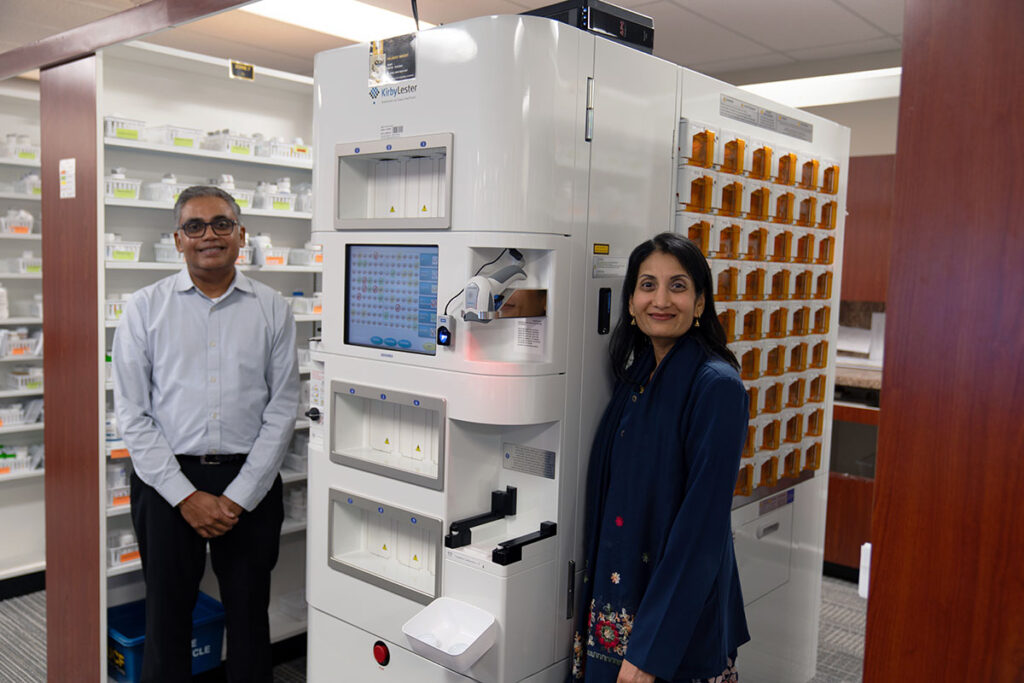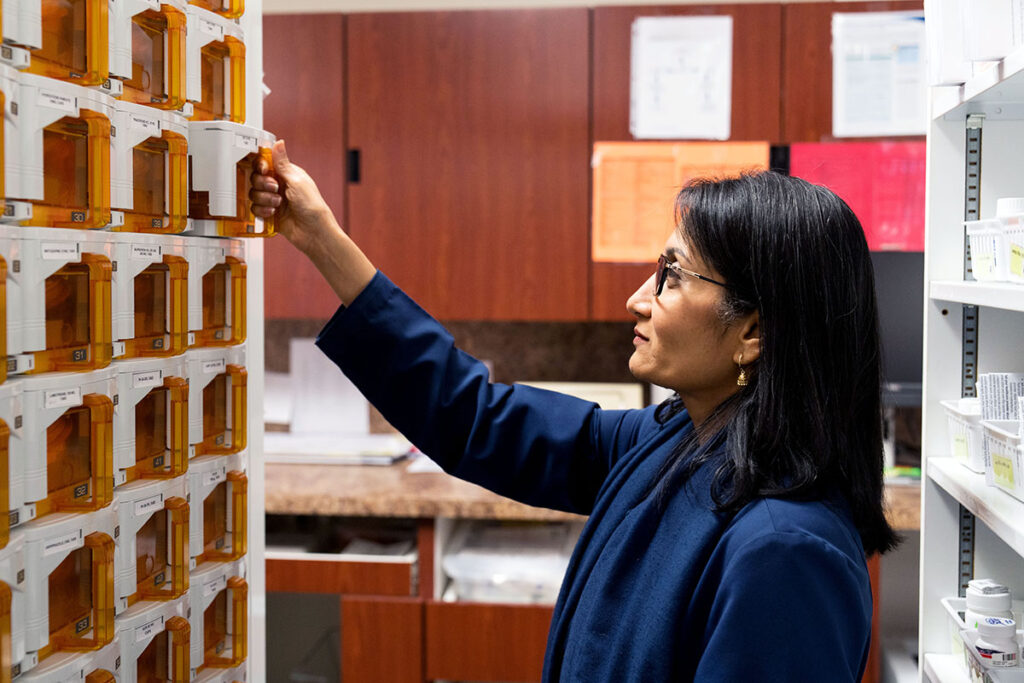One of UCF Health Student Health Services’ most industrious team members recently commemorated one year of service to its on-campus pharmacy.
For what he lacks in limb and brain, “Pillbert,” the automatic vial-dispensing robot makes up for in efficiency and intelligence. He can quickly count and label a student’s prescription in about 30 seconds with precision through nine different windows, choosing from 108 different medications stored within his sturdy frame.

Pillbert enables pharmacists to spend more time with patients, educating them on how to take their medications properly, outlining any special directions and precautions, and explaining how the medications can improve their health.
The pharmacy is located on the first floor of the Student Health Services building on UCF’s main campus so that students who may be seeing a doctor can seamlessly obtain prescribed medications in the same visit. The pharmacists estimate they filled almost 40,000 student prescriptions last year.
For his efforts, Pillbert more than earned an “outstanding” performance review in his first year, said Dr. Hetal Patel, Student Health Services pharmacy manager.
“It is accurate, and it streamlines the workflow for us,” he said. “It has not failed or been inaccurate at all in a year and a half. Pillbert contributes to our efficiency and enhances the quality of care we provide – all with zero undercounts, overcounts, or instances of mislabeling. Ultimately, that makes us more available to the students, and we can engage in more meaningful interactions with them.”
The robot is about six feet tall with 54 receptacles on each side filled with the pharmacy’s most prescribed drugs – such as antibiotics. The robot creates a label and then finds and counts the correct number of pills into a bottle by using a combination of a camera to properly identify the medication and an internal mechanical arm to gather the medication.
It takes on average about three minutes to count, label and verify a medication. Pillbert saves pharmacists nearly 40 hours a week in labor, according to a Student Health Services analysis. The robot assists with about 80-100 prescriptions a day.
“It used to be a bottleneck if someone had five prescriptions,” Dr. Patel said. “Before Pillbert, dispensing multiple prescriptions may have slowed services for others who were waiting to receive a smaller order, such as simple antibiotic prescriptions. Now it can be processed promptly as Pillbert can process multiple prescriptions simultaneously and deliver through one of the nine windows.”
While Pillbert handles the mechanics of counting and labelling prescriptions, Dr. Patel says that he and his colleagues remain responsible for checking for patient allergies, interactions between drugs and other contraindications and precautions for overall patient safety.
“For routine medication refills, he takes away inefficiencies, time-consuming tasks, and human error,” he said. “We get more time to check refill histories and ask patients questions like, ‘How is the medication working for you? Do you have any questions or concerns about the medications?’ Those details make a big difference.”
As UCF grew and Student Health’s patient load increased, Dr. Patel saw the need to make the pharmacy more efficient. However, the technology, cost, and capabilities for robotic systems weren’t aligned with the pharmacy’s needs until 2023. That’s when Dr. Patel and his colleagues were inspired to purchase the Kirby-Lester KL-108 automatic vial dispensing robot the following year.
To celebrate the technology, Student Health Services held a contest to name the robot and even created a UCF ID card and cartoon photo for him.

Pharmacists perform routine maintenance on the robot when the pharmacy is closed.
“Taking care of him is pretty easy,” said Dr. Binita Patel, a Student Health Services pharmacist. “It takes seconds to refill and replace the cassettes.”
Dr. Patel says that although Pillbert is a machine, he has integrated smoothly into the team and is an essential part of the pharmacy.
“He’s a great addition to our team,” she said. “He never complains and he always shows up.”